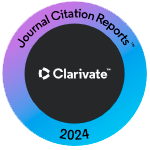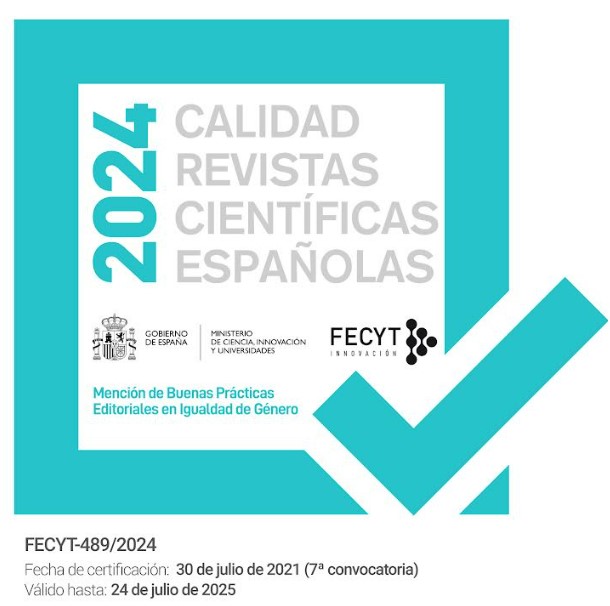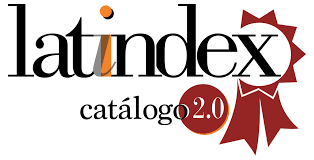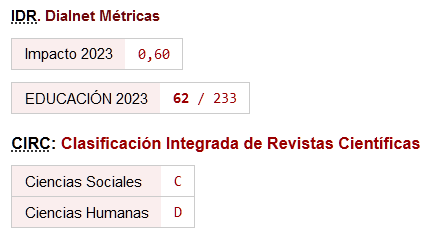Análisis del Padlet en el proceso educativo sobre el ciclo de las rocas a través de la Ciencia de Datos
DOI:
https://doi.org/10.46661/ijeri.10361Palabras clave:
Enseñanza, muro virtual, aula invertida, Geografía, PadletResumen
El objetivo general de este estudio mixto es analizar el uso del muro virtual llamado Padlet en el proceso de enseñanza-aprendizaje sobre el ciclo de las rocas a través de la Ciencia de datos. El maestro del curso de Geografía incorporó el Padlet fuera del salón de clases para facilitar el aprendizaje sobre el ciclo de las rocas y propiciar el intercambio de ideas en las sesiones presenciales bajo la estrategia del Aula invertida. Los participantes son 114 estudiantes de una preparatoria pública de la Ciudad de México. Los resultados del algoritmo regresión lineal indican que la incorporación del muro virtual impactó positivamente la revisión de las actividades y los recursos digitales educativos sobre el ciclo de las rocas. El algoritmo árbol de decisión construyó dos modelos sobre el uso del Padlet. En conclusión, los muros virtuales están cambiando la forma de organizar el proceso de enseñanza-aprendizaje sobre la Geografía.
Descargas
Citas
Aidoo, B., Vesterinen, V.-M., Macdonald, M. A., Gísladóttir, B., & Pétursdóttir, S. (2022). Perceptions of Ghanaian Student Teachers on Benefits and Challenges of the Flipped Classroom: A Case Study. Contemporary Educational Technology, 14(4), ep377. https://doi.org/10.30935/cedtech/12163
Alahmadi, A., & Saleem, M. (2022). Implementation of FCM Approach: Challenges Before Teachers and Identification of Gaps. Contemporary Educational Technology, 14(4), ep394. https://doi.org/10.30935/cedtech/12581
Andrews, D. A., Sekyere, E. O., & Bugarcic, A. (2020). Collaborative Active Learning Activities Promote Deep Learning in a Chemistry-Biochemistry Course. Medical Science Educator, 30, 801-810. https://doi.org/10.1007/s40670-020-00952-x
Colton, J. (2020). Social, Innovative and Deep: Exploring Digital Literacies in a Year 9 English Classroom. Changing English, 27(3), 270-284. https://doi.org/10.1080/1358684X.2020.1766946
Chimmalee, B., & Anupan, A. (2023). The effects of using flipped cloud learning with advancing mathematical thinking approaches on undergraduate students’ mathematical critical thinking. Turkish Online Journal of Distance Education, 24(3), 240-260. https://doi.org/10.17718/tojde.1125894
De-Witt, D., & Koh, E. (2020). Promoting knowledge management processes through an interactive virtual wall in a postgraduate business finance course. Journal of Education for Business, 95(4), 255-262. https://doi.org/10.1080/08832323.2019.1635977
Getenet, S., & Tualaulelei, E. (2023). Using interactive technologies to enhance student engagement in higher education online learning. Journal of Digital Learning in Teacher Education, 39(4), 220-234. https://doi.org/10.1080/21532974.2023.2244597
Hebebci, M. T., & Ozer, N. (2023). Blended learning in higher education: a bibliometric analysis. Turkish Online Journal of Distance Education, 24(3), 93-116. https://doi.org/10.17718/tojde.1143832
Hsieh, H. M., & Maritz, A. (2023). Effects of flipped teaching on entrepreneurship professional student’ learning motivation, self-directed learning, and learning outcome. Contemporary Educational Technology, 15(4), ep472. https://doi.org/10.30935/cedtech/13649
Hursen, C. (2021). The Effect of Problem-Based Learning Method Supported by Web 2.0 Tools on Academic Achievement and Critical Thinking Skills in Teacher Education. Technology, Knowledge and Learning, 26, 515-533. https://doi.org/10.1007/s10758-020-09458-2
Johnson, R., Cantrell, K., Cutcliffe, K., Batorowicz, B., & McLean, M. (2023). Expanding Creative Communities in the Visual Arts: Using Padlet to Support Student Engagement and Belonging in Stressful Contexts. Art Education, 76(4), 33-39. https://doi.org/10.1080/00043125.2023.2207999
Keskin, D. (2023). Implementation of flipped model in efl reading classrooms. Turkish Online Journal of Distance Education, 24(3), 261-279. https://doi.org/10.17718/tojde.1132888
Li, R., Lund, A., & Nordsteien, A. (2023). The link between flipped and active learning: a scoping review. Teaching in Higher Education, 28(8), 1993-2027. https://doi.org/10.1080/13562517.2021.1943655
Ling, C., Choy, D., & Jhen, L. (2023). Impacts of a socio-cognitive and motivation-and-learning approach on students’ writing with a real audience. Education 3-13, 51(5), 850-861. https://doi.org/10.1080/03004279.2021.2025129
Nasongkhla, J., & Sujiva, S. (2022). A HyFlex-Flipped Class in Action Learning: A Connectivist MOOC for Creative Problem-Solving. Contemporary Educational Technology, 14(4), ep392. https://doi.org/10.30935/cedtech/12554
Park, K., Farb, A., & George, B. (2023). Effectiveness of visual communication and collaboration tools for online GIS teaching: using Padlet and Conceptboard. Journal of Geography in Higher Education, 47(3), 399-410. https://doi.org/10.1080/03098265.2022.2065669
Prabhat, D. (2022). Online learning and work during the pandemic: update on the legal sector. The Law Teacher, 56(2), 290-293. https://doi.org/10.1080/03069400.2022.2040935
Rosenbaum, P. L., Silva, M., & Camden, C. (2021) Let’s not go back to ‘normal’! lessons from COVID-19 for professionals working in childhood disability. Disability and Rehabilitation, 43(7), 1022-1028. https://doi.org/10.1080/09638288.2020.1862925
Salas-Rueda, R. A., De-La-Cruz-Martínez, G., Alvarado-Zamorano, C., & Prieto-Larios, E. (2022). The Collaborative Wall: A Technological Means to Improving the Teaching-Learning Process about Physics. Center for Educational Policy Studies Journal, 12(4), 205-231. https://doi.org/10.26529/cepsj.1167
Salas-Rueda, R.-A., De-La-Cruz-Martínez, G., Alvarado-Zamorano, C., & Prieto-Larios, E. (2021). Innovation in the teaching-learning process of global climate change through the collaborative wall. LUMAT: International Journal on Math, Science and Technology Education, 9(1), 256-282. https://doi.org/10.31129/LUMAT.9.1.1471
Tang, T., Abuhmaid, A., Olaimat, M., Oudat, D., Aldhaeebi, M., & Bamanger, E. (2023). Efficiency of flipped classroom with online-based teaching under COVID-19, Interactive Learning Environments, 31(2), 1077-1088. https://doi.org/10.1080/10494820.2020.1817761
Descargas
Publicado
Cómo citar
Número
Sección
Licencia
Derechos de autor 2024 Ricardo-Adán Salas-Rueda, Arturo-Efrén Cabrera-Rodríguez, Eduardo Domínguez-Herrera

Esta obra está bajo una licencia internacional Creative Commons Atribución-NoComercial-SinDerivadas 4.0.












